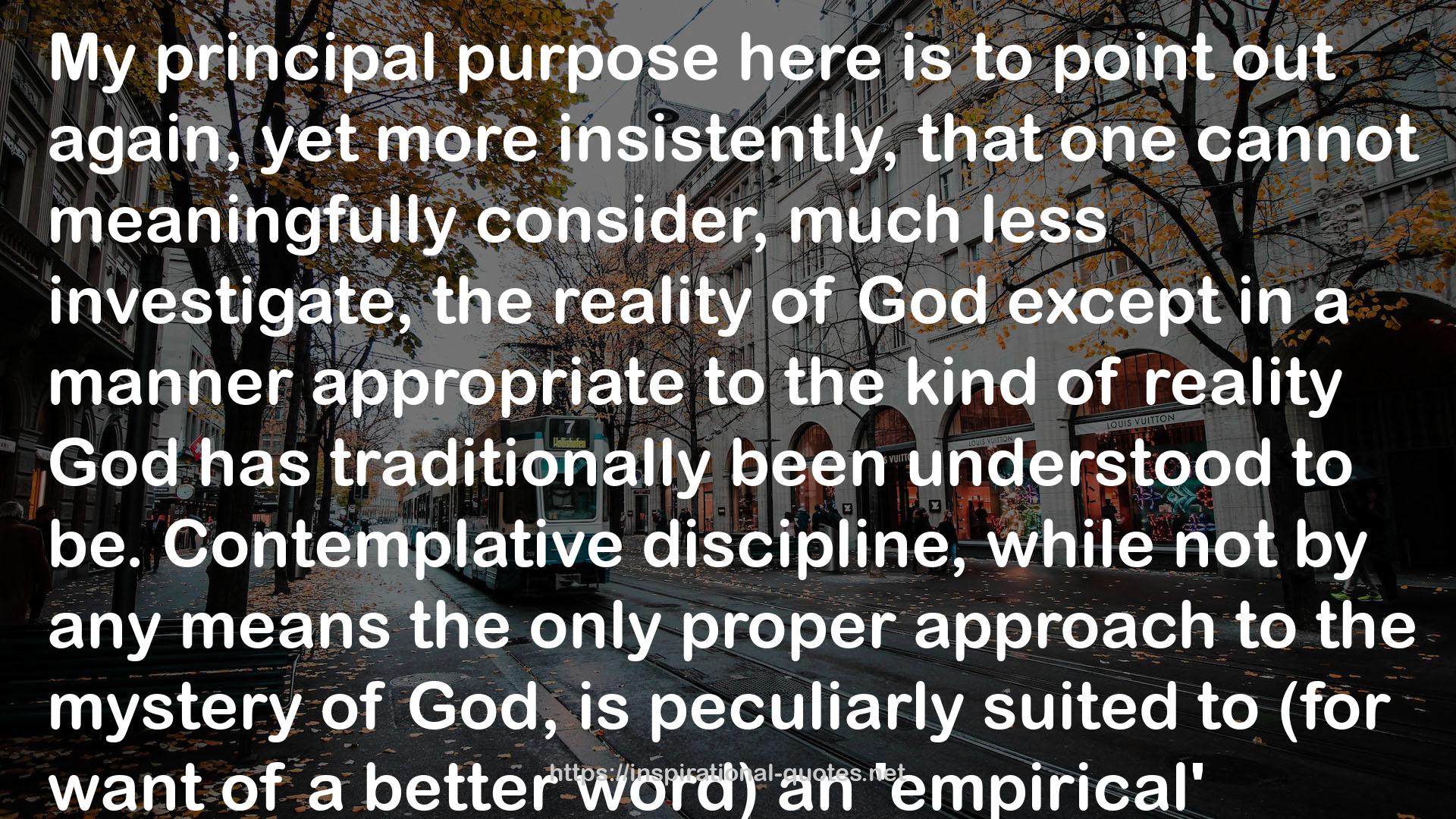" My principal purpose here is to point out again, yet more insistently, that one cannot meaningfully consider, much less investigate, the reality of God except in a manner appropriate to the kind of reality God has traditionally been understood to be. Contemplative discipline, while not by any means the only proper approach to the mystery of God, is peculiarly suited to (for want of a better word) an 'empirical' exploration of that mystery. If God is the unity of infinite being and infinite consciousness, and the reason for the reciprocal transparency of finite being and finite consciousness each to the other, and the ground of all existence and all knowledge, then the journey toward him must also ultimately be a journey toward the deepest source of the self. As Symeon the New Theologian was fond of observing, he who is beyond the heavens is found in the depths of the heart; there is nowhere to find him, William Law (1686–1761) was wont to say, but where he resides in you; for Ramakrishna (1836–1886), it was a constant refrain that one seeks for God only in seeking what is hidden in one’s heart; (...) The practice of contemplative prayer, therefore, is among the highest expressions of rationality possible, a science of consciousness and of its relation to the being of all things, (...) "
― David Bentley Hart , The Experience of God: Being, Consciousness, Bliss
